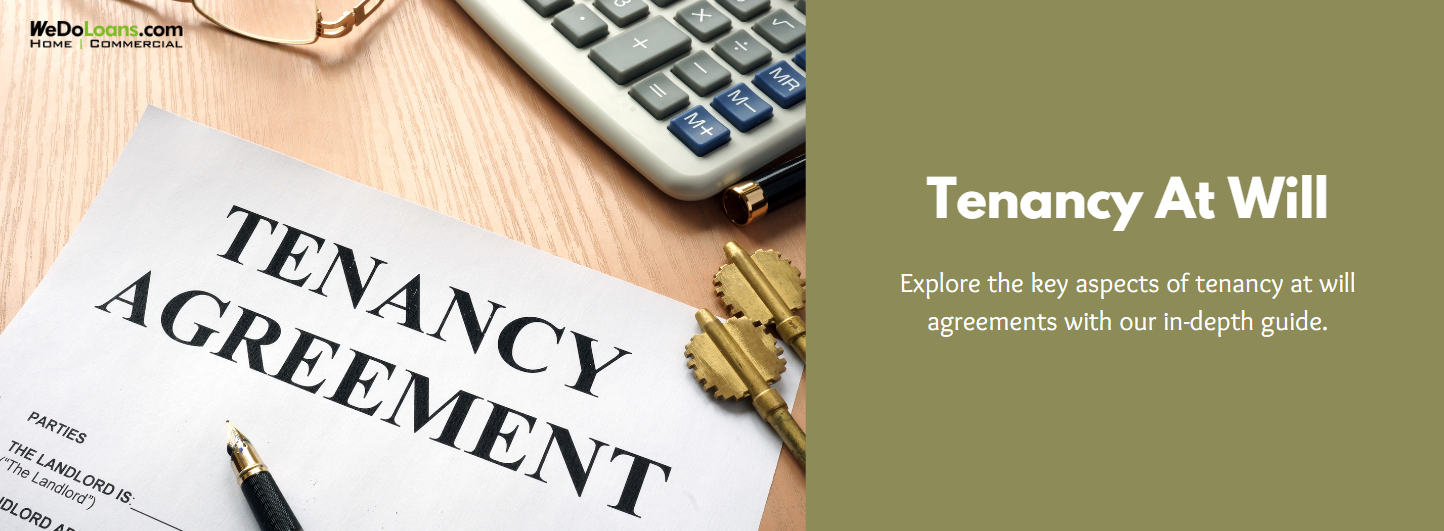
In commercial leases, the relationship between landlord and tenant can take various forms. Tenancy at will offers one of the most adaptable arrangements, but with flexibility comes both benefits and potential downsides. Let’s explore what tenancy at will offers to both parties.
What is Tenancy at Will?
A tenancy at will is a type of rental agreement where either the landlord or tenant can terminate the arrangement at any time, provided reasonable notice is given. There is no fixed end date, allowing the tenancy to continue indefinitely until one party chooses to end it.
This type of arrangement, sometimes referred to as an “at-will tenancy,” is more common in commercial real estate, although it can also apply to residential leases, often referred to as “month-to-month” agreements.
How Does Tenancy at Will Operate?
A tenancy at will works similarly to any lease, although it may be less formal. It usually includes key details like the rental amount and due dates, just like other commercial or residential leases. The key feature is that either party can terminate the agreement at any time, typically with some notice, such as 30 days.
In many cases, at-will tenancy arises from informal agreements, including verbal arrangements or expired leases that transition into tenancy at will if no formal action is taken.
Is Tenancy at Will Legally Binding?
Yes, a tenancy at will is legally binding, regardless of whether the agreement is written or verbal. However, having a written agreement is always advisable to avoid disputes and misunderstandings.
Pros and Cons of Tenancy at Will
Tenancy at will comes with both advantages and challenges for tenants and landlords.
For Tenants:
- Pros:
- Flexibility: Tenants can relocate easily without being locked into a long-term contract. This is especially beneficial for growing businesses or those facing uncertain futures.
- Possibility of Lower Rent: Some landlords may offer lower rates in competitive markets, especially for short-term rentals.
- Cons:
- Instability: Tenants face the risk of sudden eviction with short notice, which can be disruptive and costly.
- Uncertain Rent Increases: Landlords may raise the rent with minimal notice, leading to financial unpredictability.
- Limited Build-Outs: Tenants are less likely to invest heavily in space improvements due to the uncertain lease duration.
For Landlords:
- Pros:
- Flexibility: Landlords can evict tenants or raise rents to match market rates more easily, allowing them to adapt to changing conditions.
- Tenant Appeal: The flexible terms may attract tenants hesitant to commit to long-term leases, helping fill vacancies more quickly.
- Cons:
- Tenant Turnover: High turnover can lead to vacancy periods, lost rental income, and additional costs associated with finding new tenants.
- Challenges in Long-Term Planning: The unpredictability of tenancy at will can make it difficult to plan property improvements or long-term investments.
Other Types of Tenancies
In addition to tenancy at will, other common arrangements include periodic tenancy, tenancy for years, and tenancy at sufferance. Each has different levels of flexibility and security for both landlords and tenants.
When to End a Tenancy at Will
Both landlords and tenants may choose to end a tenancy at will for various reasons, such as finding a better location, changes in property use, or a desire to negotiate new terms.
Conclusion
Tenancy at will offers significant flexibility but also comes with uncertainties for both parties. If flexibility is a top priority, this arrangement can be beneficial. However, if stability and predictability are needed, other leasing options might be more suitable.
